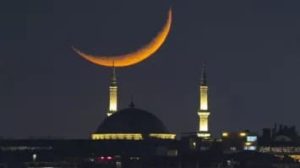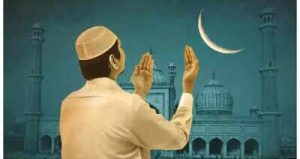Eid al-Fitr, also known as the “Festival of Breaking the Fast,” is one of the most sacred and joyous occasions in Islam. It marks the end of Ramadan, the holy month of fasting, prayer, and reflection. In 2025, Eid al-Fitr is Celebrated After the crescent moon was sighted on Sunday.The celebration begun (30 Mar, 2025 – Mon, 31 Mar, 2025).
This festival is not just a time for celebration but also a reminder of faith, gratitude, and compassion. Muslims worldwide gather for prayers, share meals, exchange gifts, and engage in acts of charity, reinforcing the values of unity and spiritual renewal.
Spiritual Significance of Eid al-Fitr
Eid al-Fitr holds immense religious importance, signifying the successful completion of Ramadan, a month dedicated to self-discipline, devotion, and closeness to Allah.
- A Reward for Patience and Worship – Muslims believe that fasting in Ramadan purifies the soul and strengthens faith. Eid is seen as a divine reward for those who observed the fast sincerely.
- Expression of Gratitude – It is a day to thank Allah for the strength and patience granted during Ramadan, as well as for His continued blessings.
- A Reminder of Charity and Compassion – The festival emphasizes Zakat al-Fitr, a compulsory charitable donation given before the Eid prayer. This ensures that even the less fortunate can partake in the festivities, reinforcing the Islamic principles of generosity and kindness.
- Strengthening Brotherhood and Unity – Eid fosters a sense of belonging within the Muslim community. People forgive past grievances, visit family and friends, and spread love and harmony.

Eid al-Fitr 2025: Date and Moon Sighting
Since the Islamic calendar follows a lunar system, the date of Eid al-Fitr varies each year. The festival begins on the first day of Shawwal, the tenth month of the Islamic calendar.
For Eid al-Fitr 2025, experts predict the crescent moon will likely be visible on the evening of March 30 in many regions. If the moon is sighted, Eid will be observed on March 31, 2025. Otherwise, the celebration will take place on April 1, 2025.
Also Read : 7 Delicious Sweet Recipes for Eid-ul-Fitr: Celebrate with Global Traditions
Traditional Rituals and Practices of Eid al-Fitr
Muslims worldwide observe various religious and cultural customs to mark this special occasion:
- Salat al-Eid (Eid Prayer) – The day begins with a special congregational prayer, performed in mosques or open spaces, followed by a sermon emphasizing peace and gratitude.
- Zakat al-Fitr (Charitable Giving) – Before the prayer, every Muslim must donate a portion of food or money to the needy, ensuring that all can celebrate Eid.
- Breaking the Fast with Sweets – Unlike Ramadan, which involves daily fasting, Eid al-Fitr begins with Muslims eating dates or sweets before the prayer, symbolizing the end of the fasting period.
- Wearing New Clothes – It is customary for Muslims to dress in new or their finest clothes, symbolizing renewal, purity, and celebration.
- Feasting and Festivities – Families prepare lavish meals, visit relatives and friends, and exchange gifts to mark the joyous occasion.


How Different Countries Celebrate Eid al-Fitr
While the spirit of Eid remains the same, cultural traditions vary across the world:
- Middle East – In Saudi Arabia, UAE, and Egypt, grand feasts, public celebrations, and fireworks displays mark the occasion. Popular dishes like lamb, rice, and kunafa (a sweet pastry) are enjoyed.
- South Asia – In India, Pakistan, and Bangladesh, families gather to enjoy delicacies like seviyan (sweet vermicelli), biryani, and kebabs. The tradition of giving children Eidi (money or gifts) is widespread.
- Southeast Asia – In Indonesia and Malaysia, many partake in “balik kampung” (homecoming) to celebrate with loved ones. Traditional foods like ketupat (rice cakes) and rendang (spicy beef stew)are prepared.
- Western Countries – In the USA, UK, and Canada, Muslim communities organize Eid prayers in parks, charity drives, and interfaith celebrations, fostering unity and cultural understanding.
Modern-Day Eid Celebrations and Global Impact
With growing digital connectivity, Eid al-Fitr 2025 is expected to be more global and inclusive than ever before. Many Muslims will share their celebrations on social media, host virtual family gatherings, and participate in online charity initiatives. Major cities worldwide will witness vibrant Eid bazaars, festive parades, and special community events.
Moreover, as many non-Muslim countries recognize the significance of Eid, workplaces and schools increasingly accommodate Muslim employees and students, fostering inclusivity and respect for diverse traditions.
Also Read : Marathi Must Be Respected in Mumbai, or Face Consequences: Raj Thackeray at Gudi Padwa Rally
Eid al-Fitr 2025 will be a time of faith, family, and festivity for millions of Muslims worldwide. As believers come together to express gratitude, seek forgiveness, and extend kindness, the festival serves as a powerful reminder of Islam’s core values—compassion, unity, and devotion to Allah. Whether through prayers, feasts, or acts of charity, Eid al-Fitr continues to be a symbol of joy and spiritual fulfillment.

